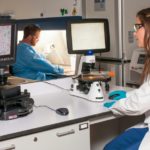Answering the ‘What is your weakness?’ Question for IMGs

How To Answer The Question: What Is Your Weakness?
It might not be something you like talking about. Indeed, most people do not enjoy looking at themselves and their faults. One question that will probably come up in a hospital residency interview – or even a fellowship interview, for that matter – is about weaknesses.What are your weaknesses?Let’s take a look at this important question for international medical graduates.
What are weaknesses?
Most dictionaries give a definition of a weakness as“a particular part or quality of someone or something that is not good or effective” (Dictionary.com)Something along these lines. Of course there are other definitions as well. In essence, a weakness is something about your character that is not effective. It is something that causes you trouble when dealing with others. It is important to understand that a weakness can be seen in relationship to other people. You might not think something you do or do not do is a weakness; however, other people around you may think it is a weakness. This can be tough in some cultures because, as mentioned above, no one likes to talk about weaknesses. A weakness can be something that:
- Slows you down
- Causes you problems
- Delays getting what you want
- Hurts or harms other people
Why is this question asked?
This question is asked to see how well you – the candidate – know yourself. The interviewer might not have much time to have a long conversation with you. Interviewers are looking at hundreds of candidate applications. International medical graduates made up on 3.3% of Post Graduate Year 1 (PGY-1) applicants in the 2022 National Residency Match Program. In addition, IMGs had a 58.1% match rate. The interviewer or interviewers most likely have read your personal statement and have looked at your CV thoroughly. Now it is the chance to get to know you as a person. Getting to know you means hearing what you are good at and what you are not. In other words, interviewers are looking for well-rounded people to join their team. The interviewers want to make sure all the team members can work effectively together. Remember, the interviewers are department heads at hospitals so they are going to be really picky. This not only means that you have the required skills and knowledge for the position, but also that you know about what you can bring to the team AND what you need to improve. This is important for preparing for your residency or fellowship interview.How to answer it?
Now, many people think of the rule of 3 when it comes to answering questions with examples and explanations. In this case, the best way is to give 2 weaknesses – or areas you need to work on. FirstMention the weakness as a something you want to improve.
For residency, there is an assumption you do not have much experience. Indeed, if you just graduated from medical school, then chances are, you have limited experience. However, a weakness does not have to be a lack of experience. ExampleOne area I struggle with is leadership. I have trouble taking a leading role, especially when I am working . . .Second
Mention why you think this is something you need to improve.
This is important. You need to show the interviewer that you think it is something difficult for you and why. What does it cause you?There are times at the clinic that the team is at a loss about what to do . . . I feel that . . .Third
Explain ways that you are trying to improve.
It is important to show how you are handling the weakness or area to improve.I find myself taking the first step in . . . I have been focusing on building my leadership skills. I have been . . .A quick way to remember is this:
- SOMETHING TO IMPROVE
- WHY YOU WANT TO IMPROVE
- HOW YOU ARE WORKING ON IT
I can only come up with 1 weakness. What can I do?
Come up with 2. I have had many doctors tell me that when they gave one weakness, the interviewer or one of the many interviewers in the meeting jumped in immediately with, “Okay. So what is another weakness?” This puts you on the spot to come up with something. If you GENUINELY have nothing to improve as a doctor, then you can simply say that you cannot think of anything else. As stated above, you need to be aware of your shortcomings in your field and in yourself.Some other weaknesses to think about are:
- Lack of clinical experience
- Time management
- Taking too much time to think
- Too focused on tasks
- Too involved with patients
- Not good enough at explaining things clearly

Important points
For IMGS, it is important to remember#1 You should not mention that English is your weakness.
You are interviewing in English. All your applications and documents are in English. Everything you will do in the process will be in English. The interviewers might not be native English speakers as well. That did not stop them from entering medicine in the US. If you are not confident in your English ability and are applying, it might be best to wait until you feel confident. I understand that this is difficult for many IMGs who had no medical education in English. You also have to consider why you want to work in the US – or Canada or the UK, for that matter. If you really want to work in these countries, you need to prepare well for it.#2 Don’t recite your sentences by rote
This means don’t sound robotic by reciting – repeating – the sentences you prepared. I know you might have memorized them, but one thing you need to do is to make the Sentences sound more natural and engaging. The interviewer or interviewers can hear when something is too well prepared. Or when something sounds flat and not convincing enough.#3 Avoid potential disasters in your answers.
The interviewers are looking for red flags – things that scream to them that you are not suiitable as a candidate. This could be interpersonal relationship problems – attitudes and opinions about people, for example – that department heads want to avoid as much as possible. If you are not sure you should mention it, then probably dont.Questions that ask you about your weaknesses
Now, the interviewer might not ask the weakness question directly. Some questions that deal with the same general topic or behavior are:- Where are some areas you can improve?
- How do you learn from your mistakes?
- Can you tell me about a mistake you made with a patient/coworker?







